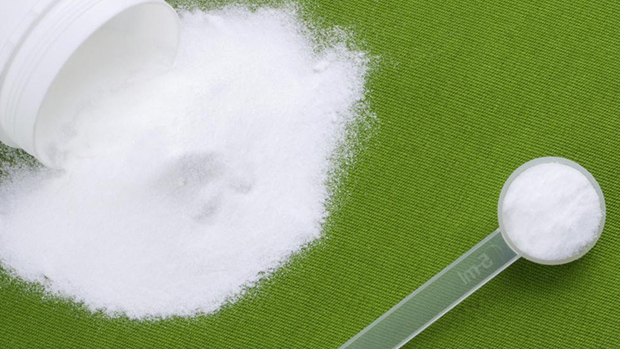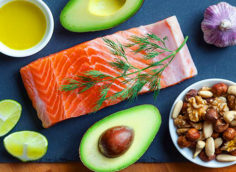One of the most frequent supplement questions I get as a strength coach is whether or not athletes should use the amino acid glutamine for either performance enhancement or size gains.
The topic comes up so much that it almost seems as though glutamine is a "no brainer" supplement just like creatine. In fact, its popularity is such that at least two separate online message boards, as well as numerous magazines, have feature articles on the use of glutamine as a supplement. The dogma of glutamine supplementation had even permeated the SWIS symposium to the extent that the numerous conversations about this amino acid were solely about how much to take, rather than whether or not to take it.
So, it seems as though everything is pretty cut and dried when it comes to glutamine use... or is it? While there was some literature-supported speculation as to the potential benefits of glutamine supplementation, there needs to be an updated review of the literature examining the current status of this purported "wonder supplement." In fact, there's quite a bit of information that's been left out of the popular bodybuilding literature that needs to be brought to light.
But before we get on to that, we should review some of the basics of glutamine.
Glutamine: The Basics
For those of you who are new to the concept of glutamine supplementation, you should know that it's a non-essential amino acid created largely by our muscles. It's also noteworthy that glutamine is the most abundant free amino acid in our bodies, comprising up to 2/3 of the muscle free amino acid pool.(13) This fact, coupled with the idea that muscle is the largest producer of this amino acid, could suggest that supplementation would be beneficial.
One potential problem with this is that glutamine is a non-essential amino acid (meaning that we don't have to consume outside sources containing this amino acid because our bodies can make it on its own), but this is where things get interesting: the use of glutamine by many different cells in our bodies is so great that there may be times when its use exceeds its availability, therefore glutamine has been termed a "conditionally essential" amino acid.(18)
This means that during times of physical stress the body may actually need glutamine from the diet to maintain proper cellular function. Clearly, activities such as resistance training constitute a physical stress on the body, which is one reason that athletes have been targeted for glutamine supplementation.
Another interesting fact about our muscles and glutamine is the issue of transport. For an amino acid to get into or out of our muscles, it has to be transported by specific carriers. Using these carriers, our muscle takes up amino acids according to demand from protein composition (i.e. what our muscles need the most), BUT amino acid release is NOT according to composition.
Alanine and glutamine can account for up to 50% of amino acid release from muscle despite accounting for only about 15% of total muscle protein.(31) Obviously, this is a huge discrepancy–which is normally made up for through glutamine production–but as mentioned earlier, during times of physical stress (i.e. exercise), the synthesis of glutamine is hindered. Everyone knows that lacking even one amino acid can hinder muscle growth, which fortifies the theory of glutamine supplementation by athletes.
Now that you're familiar with the basics behind glutamine supplementation, it's time to delve into the literature and pull out some more specific theories as to the beneficial effects of glutamine supplementation.
Glutamine and Muscle Mass
Interest first arose in glutamine as a supplement when it was found that glutamine enrichment elevated levels of protein synthesis in isolated rat muscles.(21) This isn't surprising since it's also been found that muscle protein synthesis levels can be correlated with free glutamine levels.(17) It's also been shown in vitro using rat skeletal muscle cells that glutamine may decrease protein breakdown.(22)
Additionally, we know that the anabolic/catabolic state of a muscle cell is related to it's hydration status–this simply means that cellular swelling has an anabolic or an anticatabolic effect on the affected cells (including muscle cells). Based on this, it's been found that glutamine supplementation may mediate cell swelling and therefore an anticatabolic effect through either increasing cell swelling or hindering cellular dehydration.(28)
Sure you say, these theories are all well and good in cell cultures or animals, but what about the human studies? Well, studies in humans indicate that glutamine supplementation may improve nitrogen balance in critically ill patients, as well as assist in the prevention of protein synthesis decreases following surgery (a HUGE physical stress) or following a 14-hour fast.(13, 12,24,13) There have even been a couple of studies done on resistance trained subjects (more on that a little later)!
Glutamine and Overtraining
We've all felt the scourge of overtraining: the lethargy, the sickness, and the lack of desire to train. Aside from the horrible feeling associated with overtraining, we also know that the longer we're out of the gym, the longer we go without any anabolic stimulus to our muscles. Based on this, another theory suggesting glutamine supplementation for athletes involves the prevention of overtraining.
Glutamine is used as a fuel source by many cells of our body, including many cells of our immune system. Now if you recall that there are times of stress where the body's production fails to meet its needs for glutamine, you can see that this could negatively affect the immune system. In fact, you may not be surprised to find that blood glutamine levels may be compromised following exercise induced overtraining.(1)
Surveys of endurance athletes supplementing with glutamine following a marathon race showed lower rates of infection than those who didn't supplement.(8,9) As for the applicability to bodybuilding, one study showed that resistance exercise may induce a small transient (ie short-term) negative effect on some cells of the immune system, although plasma glutamine levels weren't examined.(6)
So now we have theories for glutamine supplementation to increase protein synthesis/inhibit protein breakdown, as well as boost immunity following intense exercise. This sounds great, but we have yet to look at glutamine's potential effect to stimulate glycogen replenishment following exercise. Glutamine infusion has been shown to enhance glycogen stores following cycling exercise twice as much as compared to subjects who infused saline or other amino acids.(27) If this happened after weight training, it could even help with our cellular swelling and have the aforementioned postive effect on protein accretion.
Another study supports the use of glutamine for enhancing muscle glycogen. Bowtell et al. found that glutamine supplementation following exercise enhanced glycogen resynthesis in muscle just as well as the ingestion of a glucose polymer.(4)
Sadly at this point, many readers have already gone out and bought their kilos of glutamine, and are now reading only to find out how to use the stuff. You may argue, why not? There's plenty of evidence to support the theories presented! This was exactly the thinking when glutamine was introduced to bodybuilders several years ago. In fact, the journal articles reviewed above are the same research papers that can be found time and again, in any outdated article that's trying to sell you on glutamine. But things have recently changed; new studies have been done on animals, and people involved in resistance training, but the results are less than positive.
What the Glutamine Salespeople Don't Want You To Know:
Glutamine and Protein Synthesis – The other side of the coin
We've seen the theory that glutamine levels in the blood and muscle may decrease during or following exercise, and that this decrease correlates with reduced levels of protein synthesis. Several studies have addressed whether this relationship between glutamine and protein synthesis was a coincidental or a causal (meaning that one caused the other) relationship.
The first study compared the abilities of glutamine and the amino acid alanine to stimulate protein synthesis in rats with artificially reduced blood and muscle glutamine levels.(23) As expected, glutamine infusion increased intramuscular glutamine levels, while alanine didn't. Surprisingly, even depleting muscle glutamine levels by 60% had no effect on protein synthesis. What may also surprise you is that restoring blood and muscle glutamine levels to normal had no effect on protein synthesis compared to rats receiving no glutamine treatment! Additionally, even though whole body protein turnover didn't change, alanine stimulated protein synthesis!
In support of this contention, researchers studied the effect of glutamine supplementation on septic rats. Sepsis is a severely catabolic condition, during which glutamine levels (and protein synthesis) fall. Again, this study showed that despite increasing muscle glutamine levels to even higher than normal, it had no effect on protein synthesis or the catabolic state of the rats.(11)
Cumulatively, these studies show that decreased or increased levels of glutamine in the muscle has no effect on protein synthesis.
Another study, performed on people, examined the effect of adding glutamine to an amino acid mixture on muscle protein synthesis .(30) Ultimately, infusion of the original amino acid mixture increased protein synthesis by nearly 50%, but adding glutamine to this mix had no additional effect. This study is particularly relevant because most consumers of glutamine do so following a workout, along with other amino acids (or a whole protein).
Finally, Wusteman et al., used a drug to reduce muscle protein synthesis, along with muscle glutamine levels, in rats.(29) Much like the Olde Damink et al. study, restoring muscle glutamine levels to normal had no effect on protein synthesis. This study further supports the concept that blood and muscle glutamine levels have no bearing on protein synthesis and protein turnover.
Editor's note: Part 2, which pretty much presents a case for relegating glutamine to the Retired Supplements shelf (except for very specific circumstances) will be posted next week.




